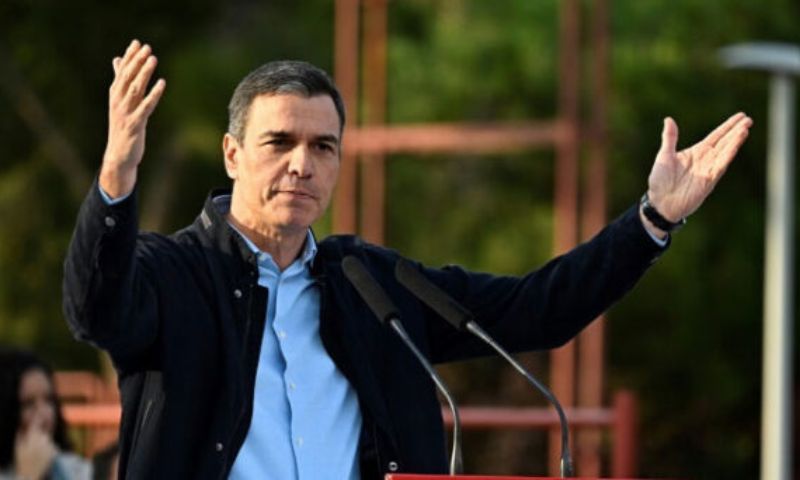MADRID: Spaniards were voting on Sunday in local and regional elections seen as a barometer for a year-end general election which survey polls suggest Prime Minister Pedro Sanchez will lose, leading to a return of the right.
The stakes are high for Prime Minister Sanchez, whose Socialist party governs the eurozone’s 4th-largest economy in coalition with the far-left Podemos.
Voters are balloting for mayors in 8,131 municipalities while also electing leaders and assemblies in twelve of Spain’s seventeen regions — ten of which are currently run by the Socialists.
In an update at 2:00 pm (1200 GMT), 5 hours into voting, participation in the local polls stood at 36.54%, or 1.59 percentage points higher than in the 2019 elections, official figures revealed.
Nearly 35.5 million people are voting in the local polls, while 18.3 million are eligible to vote in the regional elections. Balloting will end at 8:00 pm, with primary results due out 2 hours later.
Sanchez’s Rule in Spain
Sanchez has been in power since 2018, and Sunday’s polls find him facing multiple obstacles like soaring inflation, voter fatigue with his left-wing government, and decreasing purchasing power.
Alberto Nunez Feijoo, opposition leader and the head of the right-wing Popular Party, urged the public “to vote massively” and ensure the upcoming government was strong.
He said that the country has difficult history ahead, but if the government were stronger, democracy would also be stronger and Spain would get out of the economic, social, and institutional problems.
Feijoo has criticized Sanchez for pandering to the far left and to the Catalan and Basque separatist parties on which his government has relied for parliamentary support.
He has positioned Sunday’s elections as a referendum on “Sanchismo,” a derogatory term for PM Sanchez’s policies.
In his electoral campaign closing remarks, Sanchez focused on his government’s record in strengthening the economy, fighting drought, and managing the country’s increasingly sparse water resources.
He said that social democratic policies suit his country better than neo-liberal policies because his government manages the economy a lot better.
Of the twelve regions where, new leaders will be elected, ten are currently ruled by Socialists alone or in coalition.
The number of regions the Popular Party manages to wrest from the Socialists will be very important in determining people’s perceptions of whether Feijoo has won this first round — and whether his success in the year-end general polls is a foregone conclusion. But Feijoo has his own issues, especially the far-right Vox, the 3rd-largest party in parliament, which hopes to become an unavoidable partner for the Popular Party.
Since 2022, the two parties have ruled together just one region, Castilla y Leon, which was not balloting on Sunday.
Aware that the key to winning the general polls is winning the centre, Feijoo has tried to moderate the Popular Party’s line since taking over in 2022, keeping Vox at a distance.























